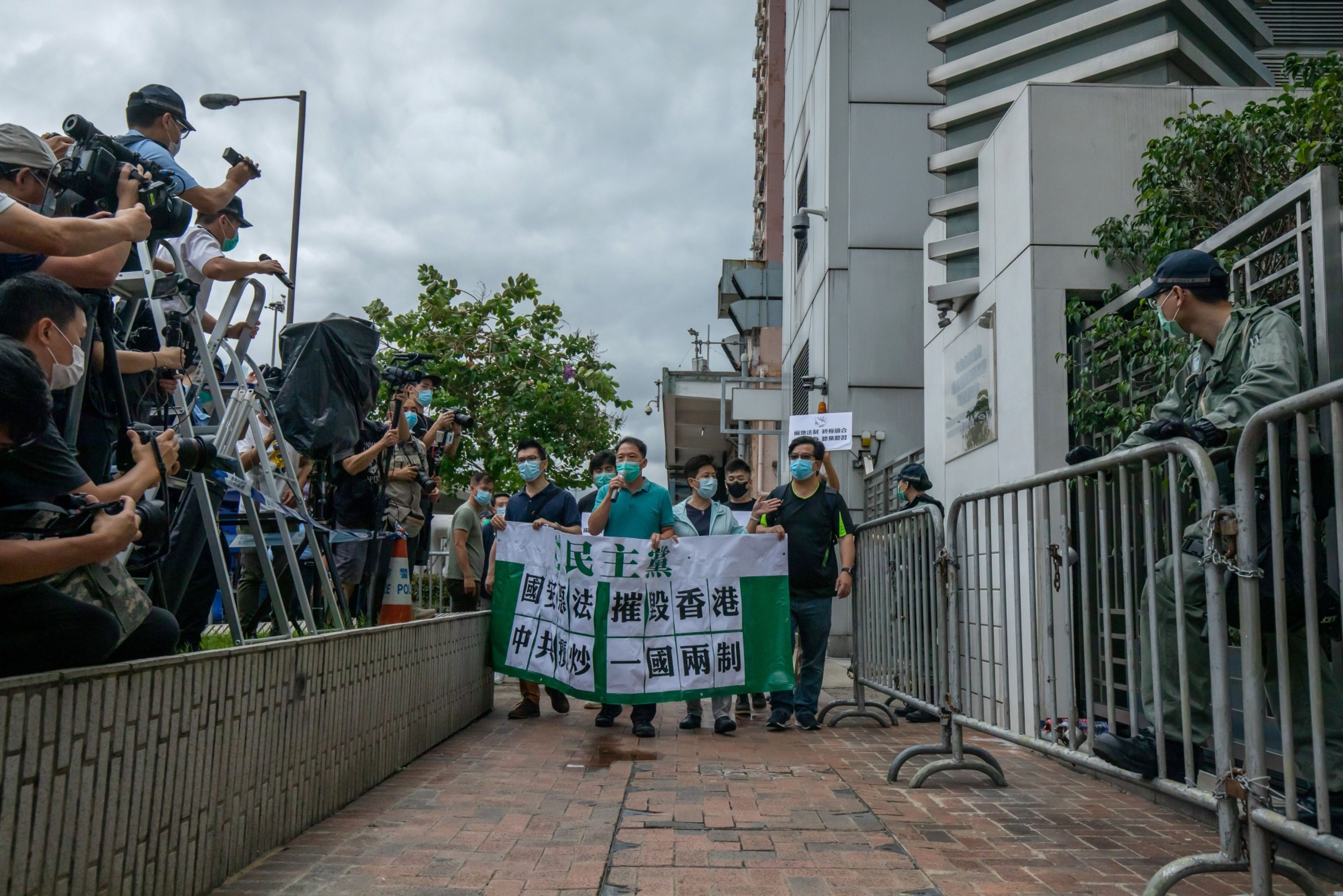May 22, 2020
Protesters organize against China security law
, Bloomberg News
Mobius on China Stocks, Emerging-Market Debt and Pandemic Recovery
Hong Kong braced for fresh demonstrations Friday and into the weekend after China announced it would impose sweeping national security rules onto the city, reigniting tensions that gripped the financial hub for months until the coronavirus ground everything to a halt.
Chief Executive Carrie Lam said the city would fully cooperate with China to enact the legislation, hours before a planned evening demonstration amid residents’ concerns over the future of “one country, two systems,” the principle by which the Asian financial hub is overseen by Beijing.
Her comments are likely to anger demonstrators and fuel protests that have resurged in recent weeks following months of disruption leveled by the virus. Already, demonstrators have called for rallies against Beijing-backed legislation, including a bill that would criminalize disrespecting China’s national anthem, on Sunday and Wednesday.
Jimmy Sham, convener of the Civil Human Rights Front -- which organized some of the biggest marches during a historic summer of pro-democracy protests last year -- told reporters he hoped for a large turnout when his group called its next demonstration. He didn’t disclose further details.
Meanwhile, President Donald Trump warned that the U.S. would respond to the planned move in Beijing, amid escalating tensions between the two powers. “I don’t know what it is because nobody knows yet,” he told reporters at the White House about the possible Chinese actions. “If it happens, we’ll address that issue very strongly.”

Key Developments:
- Protesters call for Friday, Sunday rallies
- Lam offers full cooperation on security law
- China says no country has right to interfere in Hong Kong
- Opposition lawmakers march to Chinese Liaison Office
Here’s the latest (all times local):
Security laws endanger Hong Kong’s international status, Taiwan says (4:13 p.m.)
Laws that harm democracy, human rights and Hong Kong’s freedom under the guise of national security will increase societal instability and heighten risks for international citizens in the city, Taiwan’s Mainland Affairs Council said in an emailed statement. It urged authorities to prevent greater chaos in Hong Kong and not make the “wrong decision.”
‘No country has the right’ (3:49 p.m.)
Chinese foreign ministry spokesman Zhao Lijian held a regular daily news conference in Beijing, saying that national security in Hong Kong was “purely” an internal affair. “No country has the right to interfere,” he said.
“National security is the bedrock for a country’s survival and development,” Zhao added. “No country will allow separatist activities and other activities endangering national security on its territory.”
The foreign ministry’s office in Hong Kong earlier issued a separate statement saying the security legislation would target only a small number of people who are endangering national security. It also said it hoped international society would hold a “fair and objective” view of the NPC’s decision.
Japan stresses ‘one country, two systems’ (3:01 p.m.)
“Hong Kong is an extremely important partner for our country, with close economic ties and exchange of people,” Japanese Foreign Minister Toshimitsu Motegi said Friday afternoon. “It is very important for Hong Kong to prosper stably on the basis of ‘one country, two systems.’ I want to emphasize this again.”
Lam offers China full cooperation (2:59 p.m.)
Hong Kong authorities will fully cooperate with the NPC’s Standing Committee to complete relevant legislation for national security as soon as possible, Lam said in a statement.
The government supports the NPC’s resolution to introduce the new national security law in the city as it “is facing an increasingly severe national security situation, and because legislative bodies in Hong Kong can hardly complete national security legislation on its own for a foreseeable amount of time,” she said.
Lam added this would ensure the long-term prosperity and stability of Hong Kong under “one country, two systems.” She reiterated that safeguarding national security was the city’s constitutional responsibility.
Opposition lawmakers march to Liaison Office (2:30 p.m.)
Pro-democracy lawmakers marched in small groups to the Chinese government’s Liaison Office in Hong Kong to express opposition to the measure, hours after its details were officially announced. Police took down their information and issued penalty tickets as they said they breached Hong Kong’s ban on gatherings of more than eight people, a restriction induced to contain the virus, local outlet Apple Daily reported.
Some democratic lawmakers also protested during an afternoon committee meeting at the Legislative Council. They shouted “National security law ruins Hong Kong! Hong Kong people, resist!” before pro-establishment chairperson Starry Lee told them to leave the meeting room.






